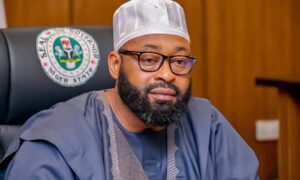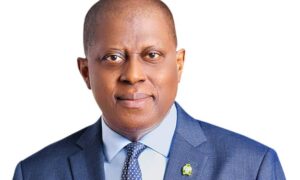BY CONSTANCE ATHEKAME
Enhancing regular electricity involves investing in renewable energy, improving grid infrastructure and promoting energy efficiency measures.
It also involves investing in renewable energy sources, upgrading grid infrastructure for efficient transmission and distribution and implementation of the energy efficiency measures to reduce consumption.
The electricity sector remains a cornerstone of Nigeria’s socio-economic development, touching every facet of life, providing the energy needed for industrialisation, innovation and improved living standards.
This is underscored by Goal 7 of the Sustainable Development Goals which is to ensure access to affordable, reliable, sustainable, and modern energy for all.
The electricity sector in Nigeria under President Bola Tinubu’s administration is undergoing significant evolution marked by dynamic reforms, regulatory complexities and a push for greater efficiency.
The Minister of Power, Mr Adebayo Adelabu, in a ministerial briefing on April 17, reaffirmed the Federal Government’s resolve to address the challenges within Nigeria’s energy sector.
He reaffirmed the Federal Government’s commitment to stabilising the grid, expanding access and fostering investor confidence.
According to him, President Bola Tinubu’s commitment to ensuring stable and improved power supply is evident in the recent achievements recorded in the sector.
He said that the sector had recorded unprecedented milestones in power generation, evacuation, and daily energy output, signalling a new era of progress and development.
Recent reforms such as the ongoing upgrade of transmission infrastructure and partnerships with renewable energy developers are pivotal to achieving sustainable solutions.
“Since the beginning of 2025, the power sector has focused on delivering measurable progress to strengthen the power sector and improve electricity access across the country.
“This is being done by working collaboratively with our agencies, partners, and the private sector.
“In fulfilment of the statutory mandate of the Electricity Act 2023, the Federal Government, through the Federal Ministry of Power, developed the National Integrated Electricity Policy (NIEP),”
Adelabu said. According to him, these transformative frameworks set a clear roadmap for delivering a resilient, cost-effective, and sustainable power sector.
The NIEP, which was presented to Mr President, has been submitted for approval by the Federal Executive Council of Nigeria.
“This policy guides all power sector actors, including investors, operators, regulators and the supervising ministry, to transform Nigeria’s power sector through a data-driven and evidence-based approach, ‘’ he said.
The minister also said that the Federal Government’s commitment to energy access was further demonstrated when it signed the Nigerian Energy Compact in January in Dar es Salaam, Tanzania.
He said that the initiative, led by the World Bank and the African Development Bank (AFDB) aligned with the Federal Government’s aspiration to expand energy generation.
He said that one of the major focus of the power sector was to improve generation and increase energy access, adding that over the past months, continuous progress in generation had been made through several initiatives.
“On March 2, Nigeria reached a remarkable generation available capacity of 6,003 MW, marking the first time this level had been recorded in the country’s history.
“This achievement was followed by a peak generation evacuation of 5,801.44 megawatts on March 4, which also saw an impressive daily energy output of 128,370.75 megawatt-hours on that day.
“The average daily power generated and distributed in the first quarter of 2025 was 5,700 MW compared with the 4,100 MW achieved in the third quarter of 2023.
“This indicates a growth of 1,600 MW, nearly 40 per cent growth since we assumed office at the ministry, ‘’he said.
Adelabu said that the process of full evacuation from the Zungeru and Kashimbila hydropower plants was underway.
According to him, Zungeru currently evacuates 550MW out of the 700MW capacity, while Kashimbila evacuates 40MW of the 40MW available capacity.
“We are in the initial phases of developing the Makurdi hydro project and revitalising the Kaduna thermal plant, both of which will enhance power generation on the grid.
“Makurdi holds the potential for significant hydropower generation of approximately 1500MW, ‘’ he said.
Some experts in the power sector commended the reforms being carried out by the Tinubu’s administration to ensure that Nigerians enjoy steady and improved power supply.
However, the experts said that there were still a lot of challenges in the sector that needed urgent attention by the Federal Government.
Mr Isreal Abraham, President, Chartered Institute of Power Engineers of Nigeria (CIPEN) said that the power sector renewal was an ongoing process.
Abraham said that the FGN Power Company was the project that is been undertaking by government under the auspices of Presidential Power Initiative (PPI) to improve power supply in the country.
According to him, the second phase of the programme is on-going, and when completed, will boost power supply.
“The unbundling of the Transmission Company of Nigeria (TCN) into two entities: the Nigerian Independent System Operator Nigeria Limited (NISO) and the Transmission Service Provider (TSP) will strengthen infrastructure, energy despatch, wheeling and market, he said.
Abraham also said that the Rural Electrification Agency (REA) had been refocused to deliver renewable energy through Energising Education Programme (EEP) to schools, rural and underserved communities.
Mr Princewill Okorie, National President, Association for Public Policy Analysis (APPA) said that the power sector under this administration had done well by the signing of the Electricity Act 2023 into law.
Okorie said that the signing of the Act had brought about the efforts of states establishing electricity markets.
He, however, decried the marginalisation of electricity consumers in policy implementation.
According to him, no unit in the ministry of power drives implementation of the consumer protection component of Electricity Act 2023 as it is done for transmission, distribution and generation.
He urged the government to do everything possible to cushion the effect of high tariffs on electricity consumers.
As the Bola Tinubu clocks two years in office, stakeholders urge power authorities to focus on interconnected strategies to improve the sector.
They said that the country could work towards a more reliable, efficient, and sustainable power sector that supports economic growth and improves the quality of life for its citizens.















